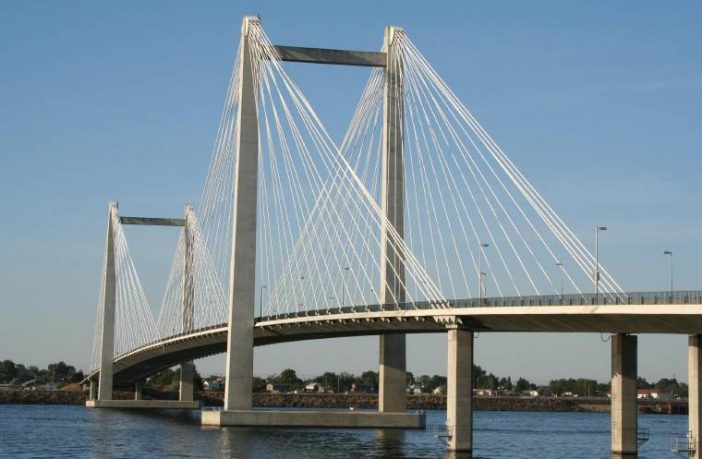- Construction of a new bridge over the Volta River on the Eastern Corridor road will begin next year, the Japanese Ambassador to Ghana, Mr Tsutomu Himeno, has assured.
- Japan has provided funding for the 540-metre bridge, which will link Asutsuare Junction and Asikuma Junction.
Back in December 2016, Parliament approved a loan agreement for ¥11.2 billion ($112.39 million) from the Japanese government for the project. The bridge which is now going ahead, will be Ghana’s second longest. The cable stayed bridge will consist of an asphalted dual carriageway with ancillary facilities including pedestrian walkways, bicycle lanes, a mini rest stop and toll bridges.
Due to logistics concentration on the Central Corridor road, chronic congestion occurs in the capital city of Accra and the second largest city, Kumasi.
The Eastern Corridor is thus the shortest route from the Tema Port to the Burkina Faso border avoiding a passage through Kumasi. Mr Himeno said the new bridge would be an alternative to the Adomi Bridge and would increase transport capacity on the Eastern Corridor.
The cable stayed bridge will be 17.1m wide on concrete pier and abutments. It will have three spans, two outer spans of 96m and a middle span of 280m.
Ghana’s Minister of Finance, Mr. Seth Terkper commented that the bridge is expected to serve as a catalyst for regional integration and contribute to the overall growth of the economy. “It is also expected open up the corridor and boost the export of Ghana’s non-traditional crops, mainly sheatnuts, cocoa butter and mango from the Eastern, Ashanti, Brong Ahafo and Northern Regions to the ports of Tema and Burkina Faso,” he said.
Author: Bryan Groenendaal











